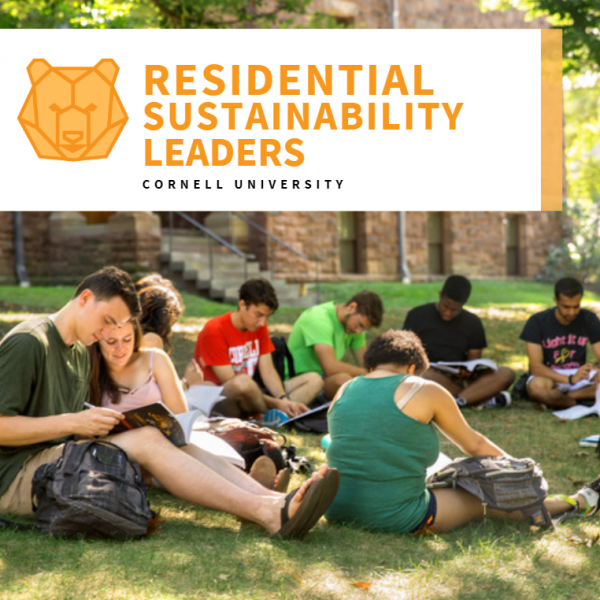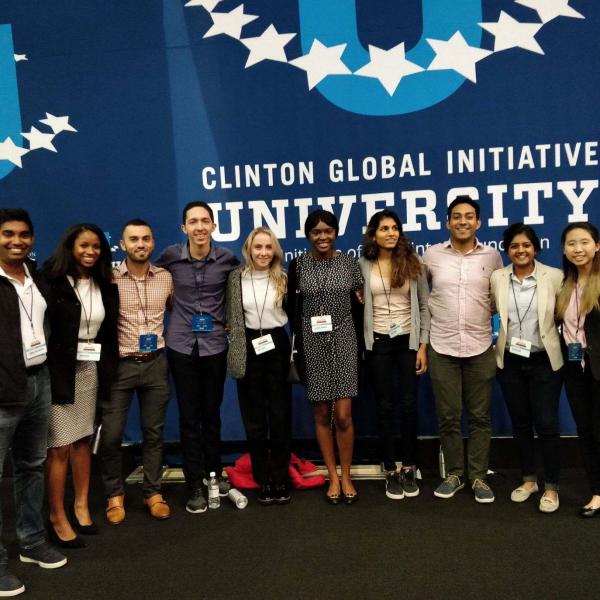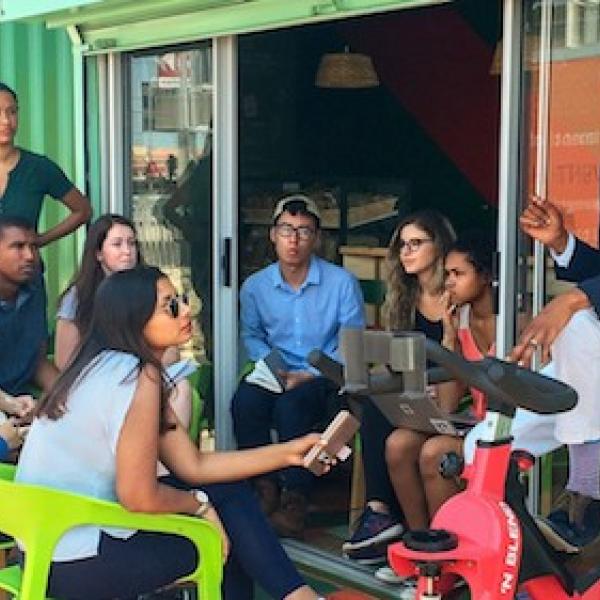Overview
To apply, ILR students must be enrolled in ILRID 3550 Native American Dispute Resolution, a 7-wk course offered from March 19-May 9, 2024.
*******************************
NOTE-- Only ILR undergraduates who will be enrolled in the ILR School during the fall 2024 semester are eligible for this program. Seniors, graduating in May 2024, or juniors in the 3+3 program, are NOT eligible for the travel option.
Due to limited space and funding, only 5 to 6 students will be accepted into the travel option through a competitive application process. Students who have not taken part in an ILR engaged-learning program will have priority for travel.
The Scheinman Institute on Conflict Resolution, in collaboration with the ILR International Programs Office, will offer a 7-week course, starting in mid-March, for 1-credit (note that ILR students may exceed the semester 18-credit limit up to 20-credits to take this engaged learning course). The supplemental travel portion in the Southwest in mid-May, after final exams, to explore mediation practices by the Hopi and Navajo Nations.
The primary objective of this engaged learning program is to explore the culture of two Native American tribes and their traditional and modern methods of resolving conflicts. The secondary objective is to study contemporary dispute resolution in the southwest United States, including water, land use, tourism, and environmental issues.
Richard Fincher (ILR'73), the Executive Director of the Asia Labor Arbitration Project (ALAP) in Scheinman will serve as the primary faculty lead for the program, and Donna Ramil, the Senior Associate Director of ILR IP, will serve as the administrative and engaged-learning lead. MacArthur Stant, an attorney in the Navajo Nation Department of Justice Water Rights Unit, will serve as the resource expert in Arizona. Richard, Mac, and Donna have co-lead this opportunity in a virtual format in 2021 and 2022.
What is unique about this program?
Students will gain a broad understanding of the of current issues under dispute by indigenous communities in the US. In spring 2024 (second 7-week term), students will attend pre-program sessions to review traditional mediation and restorative justices practices.
The approximate travel dates will be from May 18-25, 2024 (this will be confirmed). Students must be available during the entire program time-frame- no exceptions.
Some of the topics that may be covered in the program include:
Overview of Native American history, treaties, federal obligations, and oversight
Conflict resolution in the Hopi nation (transformative mediation)
- Conflict resolution in the Navajo nation (peacemaking)
- Conflict resolution in the national park system -environmental/pollution, water use, tourism overuse, effects of Glen Canyon Dam, employee disputes, light pollution, noise pollution from aircraft, employee issues
- Conflict resolution in water rights and environmental issues (multi-state Drought Contingency Plan for the Colorado River, cattle grazing rights)
- Cultural Program on Southwestern Native American silver jewelry and silversmiths
Program Timeline
Early-May: complete the course.
Mid-late May: Arrive in Phoenix, AZ on May 19 or very early (before 10 am) on May 20, 2024.
Early fall semester: complete a research paper and present a poster at the ILR Engaged-Learning Global Gallery (details will be provided).
Program Costs
Students are expected to pay for their round trip flights to Phoenix, AZ. For students with a demonstrated financial need, there will be a small competitive travel grant. Field costs will be covered through various generous alumni donors. Students will need to pay for some meals (estimated $100-$150) and personal items (amount varies).
How do I apply?
1) Review the program Requirements and enroll and successfully complete ILRID 3550 (7-weeks, March 19 to May 9th.)
2) If possible, meet with the program advisor (Donna Ramil, dmr47@cornell.edu) to discuss the program details and your eligibility.
3) Complete the online application by clicking on the "Apply" button on this web page. You must log in with your NetID and password to access the application. Note that the term in "Summer 2024".
If you have a problem with the application, please contact dmr47@cornell.edu for assistance.
THE HOPI AND NAVAJO NATIONS ARE LOCATED ON SOVEREIGN TERRITORIES IN THE SOUTH WESTERN UNITED STATES.
EACH NATION IS DISTINCT WITH UNIQUE CULTURAL BEHAVIORS AND LANGUAGES.
TO BE SUCCESSFUL, YOU MUST ACCEPT AND RESPECT INTER-CULTURAL DIFFERENCES. Some accommodation may not be available on sovereign territory.
There will be program guidelines and rules that all students must follow in a respectful and mature manner. At any point during the program, a student who displays culturally disrespectful or inappropriate behavior to a member of the local community, a program leader, or a classmate, can be withdrawn from the program.
Students must be adaptable, flexible, respectful, and mature to take part in the cohort.






